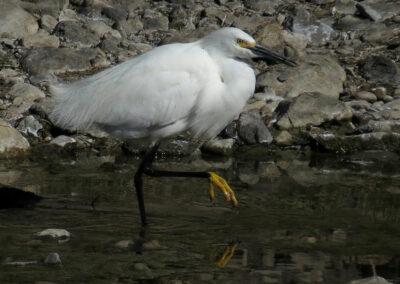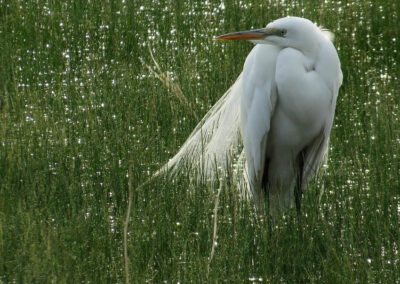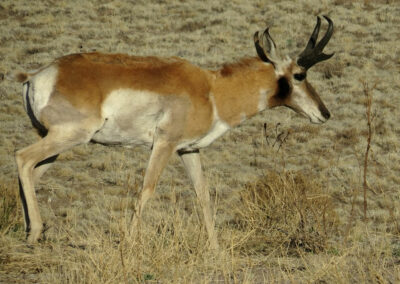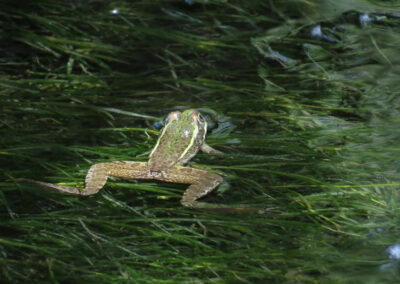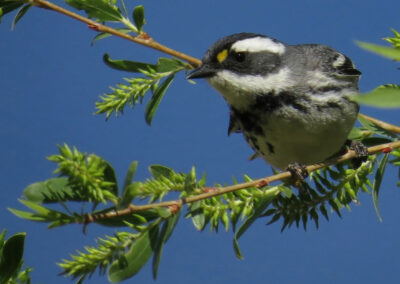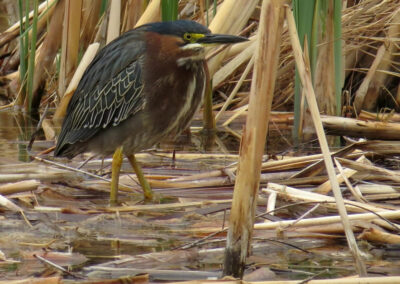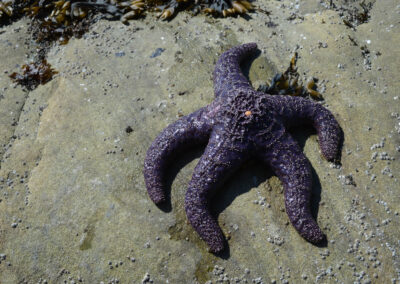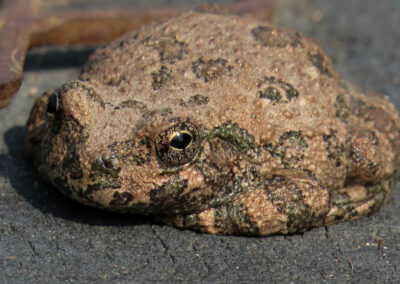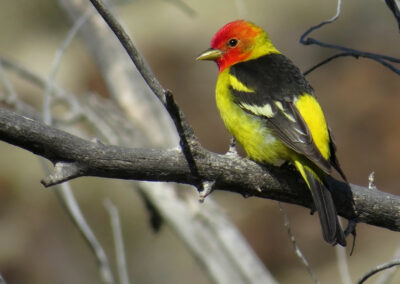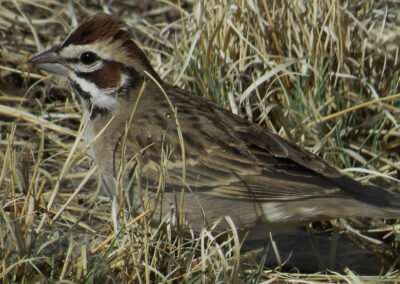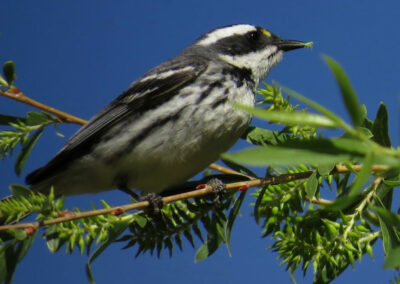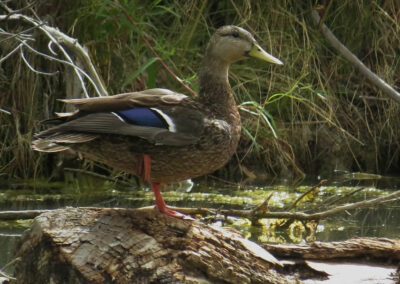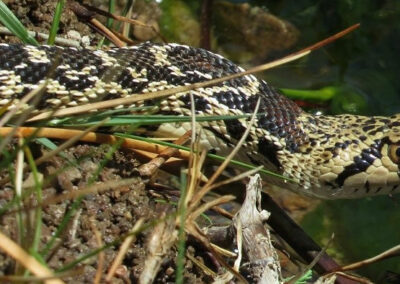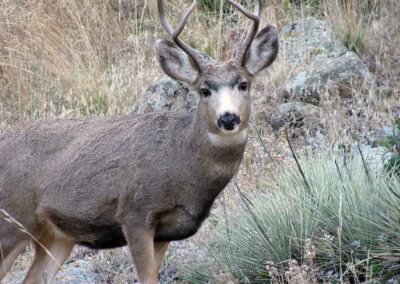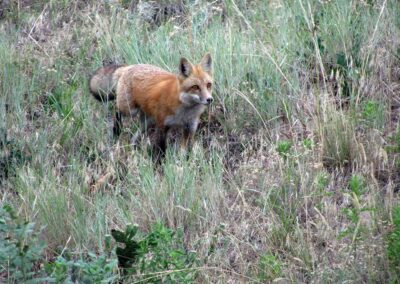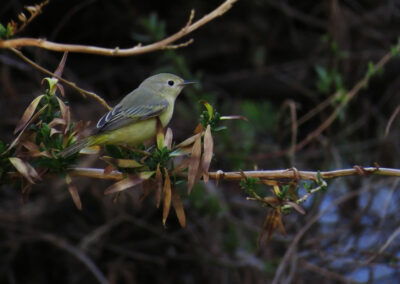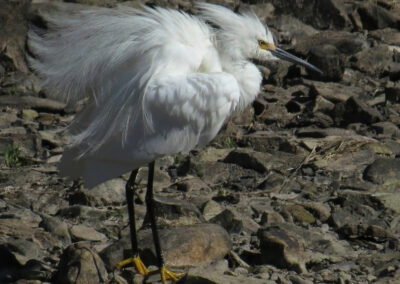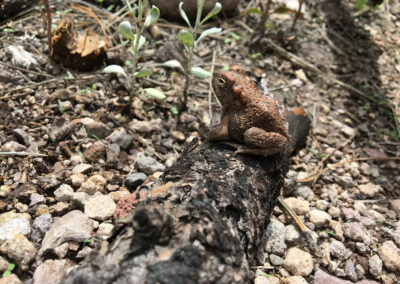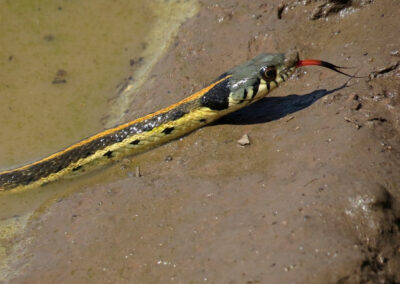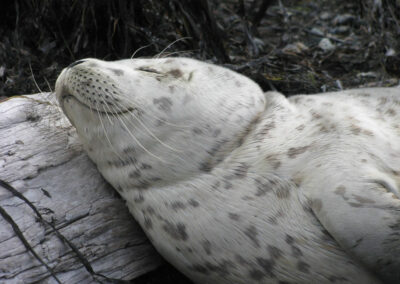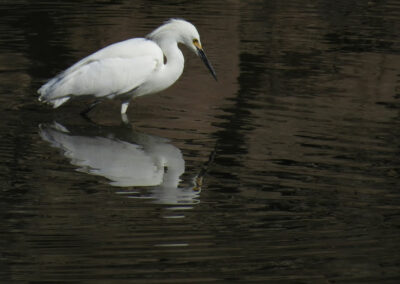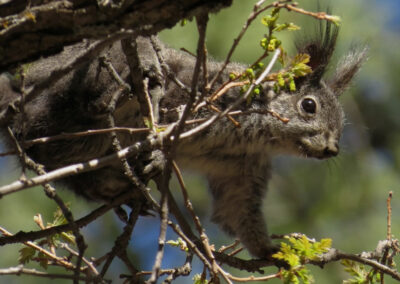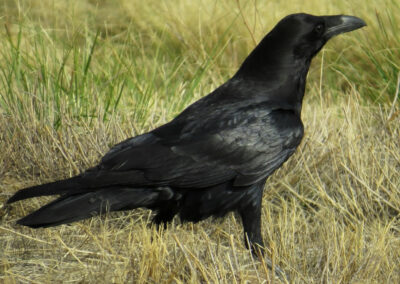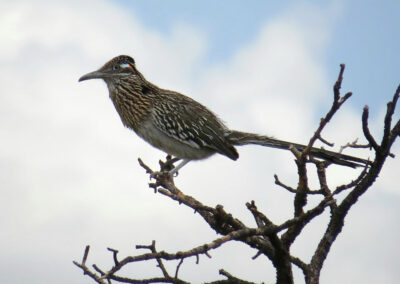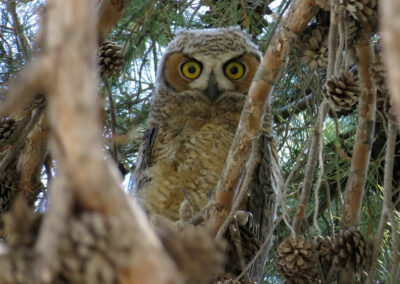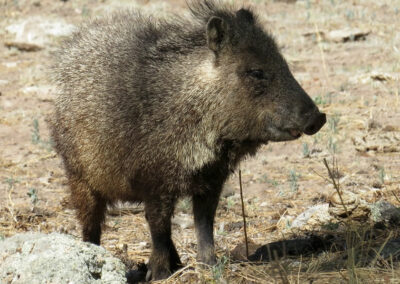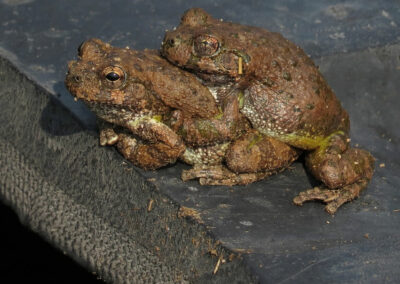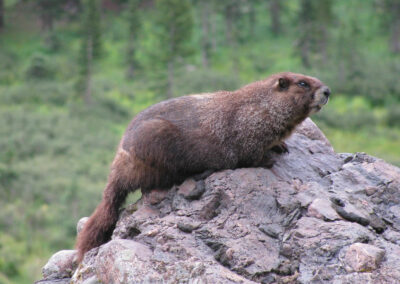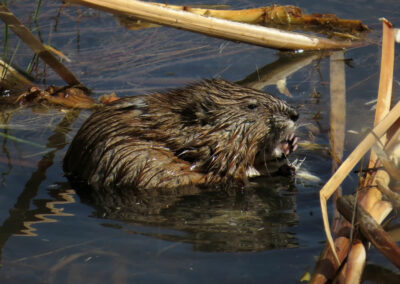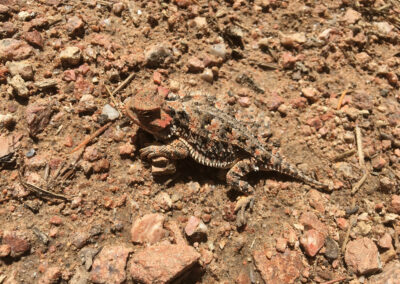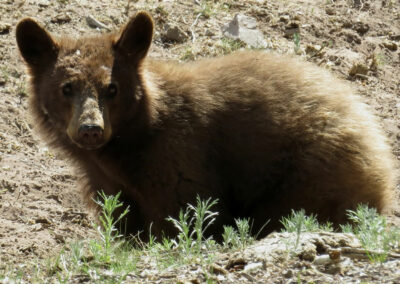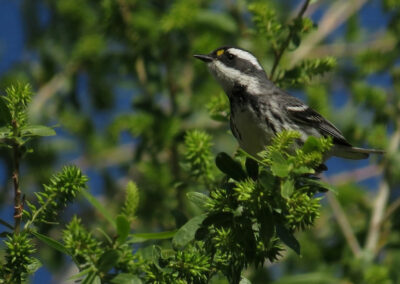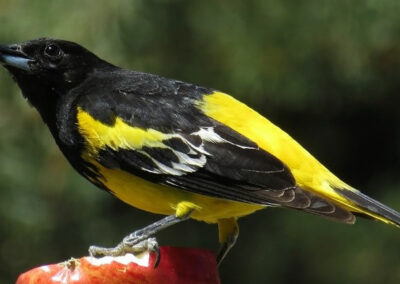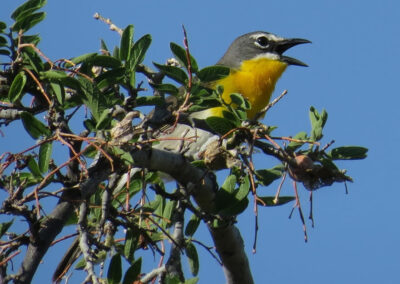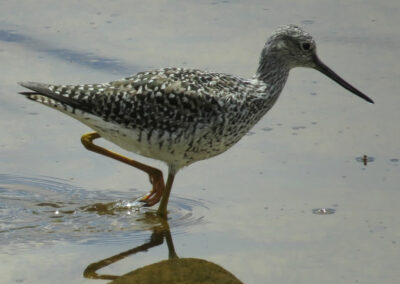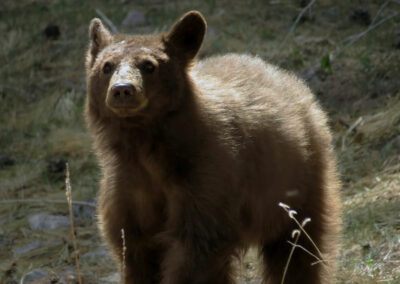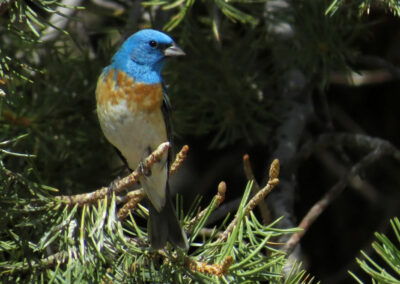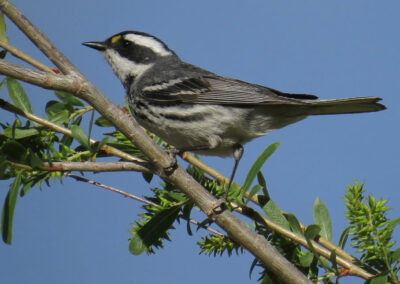Webinars & Presentations
Webinar: Don’t be Spooked: Making Sense of State Wildlife Action Plans
Presented by Wildlife for All on October 30, 2024
On Wednesday, October 30th we hosted a webinar to discuss the importance of SWAPs, not only as comprehensive assessments of wildlife status but as essential tools for identifying and supporting Species of Greatest Conservation Need.
We also discussed how SWAPs can be used to advocate for increased funding and improved transparency, serving as a tool to push for stronger resource allocation and clearer priorities within state wildlife agencies.
We emphasized how public input can shape species priorities and conservation focuses by suggesting actionable recommendations and ways to overcome barriers to authentic conservation.
Watch the recording of the webinar ►
View Presentation as a PDF
Webinar: The Fight for Wolves: Why State Policy Matters Now More Than Ever
Presented by Dr. Michelle Lute on October 16, 2024
Wildlife for All Executive Director Dr. Michelle Lute, joined the Wolf Conservation Center for a discussion on the crucial role of state policy in protecting wolves and other wildlife. As the U.S. Fish and Wildlife Service moves forward with its appeal to potentially delist wolves nationally, it’s clear that we can’t rely on federal protections alone. Michelle explored how state-level reforms are essential to safeguarding vulnerable species, how to get involved in local policy efforts, and why community-driven wildlife governance is more important than ever.
Watch the recording of the webinar ►
Webinar: The Decolonization of Conservation
Presented by Jazmin Sunny Murphy on June 15, 2022
The system of wildlife management and conservation in North America has a long history of exclusion, as well as hostility towards species like native carnivores. In this webinar hosted by the Wolf Conservation Center, researcher Jazmin “Sunny” Murphy discusses the imbalance of power in wildlife management and ways we can move forward. Through examples of historical documents from the early 1900s, she illustrates how the early system of wildlife conservation protected “desirable” wildlife and continued to persecute native carnivores like wolves as symbols of the “savage wilderness” to be subdued, which parallels the government’s history of exclusion and genocide of Indigenous people. She explains how this system continues to be permeated by a utilitarian ideology, excluding many people, groups and worldviews from decision-making, and why there is so much resistance to change..
Watch the recording of the webinar ►
Webinar: Science and Ethics Agree: Coexistence Must Replace Killing Wolves
Presented by Francisco J. Santiago-Ávila, PhD, on March 31, 2022
In this presentation hosted by the Wolf Conservation Center, Francisco J. Santiago-Ávila discusses the role of ethics in wildlife governance, and how values play a key role in the decision-making process. Current state wildlife policies reject robust, compassionate, just, and democratic worldviews, which are highly valued by many Americans. Policies such as the hunting and trapping of native carnivores are deeply rooted in traditionalist values, which do not take into consideration the intrinsic value or ethical considerations of wild animals. Using gray wolves in the Great Lakes Region as a case study, he explains how current ethical and scientific knowledge of wolves aligns with the Ojibwe worldview on the human-wolf relationship, which promotes compassion and coexistence.
Watch the recording of the webinar ►
Webinar: Let’s Talk Wildlife Management
Presented by Don Molde on January 2021
In this presentation hosted by the Lahontan Audubon Society, Don Molde discusses the current system of wildlife management, including state wildlife commissions, funding of wildlife agencies, the public trust doctrine, the four types of wildlife values (traditionalist, mutualist, pluralist, distanced), and the recent rise of birding and other forms of wildlife watching. Using specific examples from the state of Nevada, he shows how wildlife management in North America is undemocratic and fails to protect biodiversity and ecosystems.
Watch the recording of the webinar ►
Webinar: Justice for All: Preventing Cruelty through Wildlife Governance Reform
In this presentation hosted by the Wolf Conservation Center, Wildlife for All’s Co-Executive Director, Michelle Lute, discusses how wildlife governance reform can prevent future cruelty to wildlife, such as the recent tragic incident of the tortured wolf in Wyoming.
Watch the recording of the webinar ►
Webinar: An Introduction to Pittman-Robertson and Dingell-Johnson for Wildlife Advocates
Presented by USFWS staff, March 22, 2024
Federal grants under the Pittman-Robertson Wildlife Restoration Act (PR) and Dingell-Johnson Sport Fish Restoration Act (DJ) are important funding sources for state wildlife agencies, accounting for more than one-quarter of agency revenues, on average. Because of the amount of money involved, and the rules for how it can be spent, PR/DJ are important factors in how state agencies prioritize their fish and wildlife conservation efforts, yet these programs are not well understood by many wildlife advocates. In this webinar, our guest presenters with the U.S. Fish and Wildlife Service, Office of Conservation Investment, explain the nuts and bolts of how these federal funding programs work, how these funds are used, and answer audience questions.
Watch the recording of the webinar
Webinar: Beyond the North American Model
Presented by Dr. Anja Heister, February 22, 2024
Dr. Heister takes a critical look at the North American Model of Wildlife Conservation (NAM). She points out shortcomings of NAM as both an accurate description of the past or as a guide for the future, and presents highlights from her book, Beyond the North American Model of Wildlife Conservation: From Lethal to Compassionate Conservation. Originally from Germany, now living in Missoula, Anja is a co-founder of Footloose Montana, a grassroots organization dedicated to protecting all wildlife and ending the nightmare of trapping on public lands. She holds a Masters degree in Biology, from the Johann Wolfgang von Goethe University in Frankfurt, Germany, and an interdisciplinary PhD specializing in wildlife conservation, ethics and public policy from the University of Montana.
Watch the recording of the webinar
Webinar: From Wildlife Policy to Social Justice: Rethinking Wildlife Management in the U.S.
Wildlife for All’s Executive Director, Kevin Bixby, and Project Coyote’s Carnivore Conservation Manager, Michelle Lute explain how the current system of wildlife management in the U.S. not only fails to protect wildlife but is also undemocratic, unjust to both people and animals, and lacks compassion. They discuss the policy reforms needed to replace the current system with a paradigm based on multi-species justice and an ethic of coexistence.
Watch the recording of the webinar
Symposium Presentation: The Undemocratic Nature of Wildlife Governance Today, and How to Fix It
Given by Kevin Bixby at the 2022 TWS Conference, Spokane Washington, November 10, 2022
Symposium Presentation: An Overview of State Wildlife Management and its Deficiencies
Given by Kevin Bixby at the 2022 North American Congress of Conservation Biologists, Reno Nevada, July 18, 2022
Symposium: Modernizing State Wildlife Management to Restore Wildlife Resiliency
Organizer: Kevin Bixby, Wildlife for All
Given at the 2022 North American Congress of Conservation Biologists, Reno Nevada, July 18, 2022
Featuring:
- Kevin Bixby, Wildlife for All, An Overview of State Wildlife Management and its Deficiencies
- Michelle Lute, Project Coyote; Francisco Santiago-Ávila, Reforming Conservation Governance to Restore Resiliency and Multi-species Justice
- Jeremy Bruskotter, The Ohio State University; Leeann Sullivan, Colby College, Social Changes Challenge Wildlife Conservation
- Don Molde, Nevada Wildlife Alliance, The Nevada Board of Wildlife Commissioners: Brief History, Current Status, Possible Changes
Watch the recording of the presentation►
Video Presentation: It’s Time to Decouple Conservation from the Gun Lobby
This slide presentation by Kevin Bixby, Executive Director of Wildlife for All, was given to the Endangered Species Coalition based on his op-ed published July 11, 2022 in Truthout by the same name.
Watch the recording of the presentation►
Webinar: The North American Model of Wildlife Conservation – Past, Present, and… Future?
Wildlife for All’s Executive Director, Kevin Bixby, and WildEarth Guardian’s Southwest Wildlife Advocate, Chris Smith, explain the history, successes, and major flaws of the North American Model of Wildlife Conservation. They discuss how this model continues to determine the trajectory of wildlife management throughout the United States and Canada, and provide some insight into the ways it has outlived its usefulness and needs to be revamped.
Watch the recording of the webinar ►
Transforming State Wildlife Management in the U.S.
Transforming State Wildlife Management to Protect Biodiversity in the U.S. features three distinguished panelists who have worked on and thought about state-level biodiversity conservation for a long time: Professor Adrian Treves, founder of the Carnivore Coexistence Lab at the Nelson Institute for Environmental Studies, University of Wisconsin-Madison; Louisa Willcox, co-founder of Grizzly Times and a passionate advocate of protecting grizzlies, wolves and other large carnivores; and Dr. Fred Koontz, field biologist and conservationist who retired after a 35-year wildlife conservation career working in zoo, field and university settings at the Wildlife Conservation Society, Wildlife Trust (now “EcoHealth Alliance”), Columbia University, and the Woodland Park Zoo. The webinar is moderated by wildlife conservationist Kevin Bixby, founder and executive director of Wildlife for All. Kevin was the lead organizer of the first national conference on the topic of Reenvisioning State Wildlife Governance, held in Albuquerque, New Mexico in 2018.

